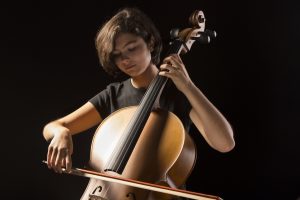What Are Best Practices for Teen Musicians to Protect Their Hearing?
We have all been to concerts with music blaring from speakers, and we walk out with ringing in our ears and other noticeable hearing issues. Imagine the issues the actual musicians in the band deal with after each concert. Most of us love loud music, but we know it can damage our hearing. Young folks are not as concerned, so parents need to find out what are the best practices for teen musicians to protect their hearing.
What Is Noise Induced Hearing Loss?
No matter your age or your status every musician is at risk for noise induced hearing loss. Think about it, if you can’t hear the notes clearly or if the pitch or key is wrong, you won’t last very long in the music business.
hear the notes clearly or if the pitch or key is wrong, you won’t last very long in the music business.
Tinnitus is a common problem among musicians or “ringing in the ears.” Many famous rock artists suffer from this hearing issue. Loud sounds over a period of time can cause permanent hearing damage.
Teens who are in their own rock bands or are part of their high school or college band can be very susceptible to hearing loss no matter what instrument they play. In addition, they don’t realize that when they play or practice indoors, the noise level is higher than playing outdoors.
It is believed that six million teens suffer from hearing loss today. This is from the sustained exposure to loud music and sounds.
Not convinced? Many famous rockers suffer from hearing loss. For example, both Brian Johnson from AC/DC and Pete Townshend from The Who both have hearing loss from not protecting their ears from loud music. Brian Johnson had to finally retire.
Consult with a hearing specialist like Hearts for Hearing for the hearing protection they might recommend.
Strategies for Protecting Teen Musicians and Their Hearing
Teen musicians should use the following tips to keep their hearing health in check.
- Use earplugs. Start early to protect your hearing. Using professional earplugs is a way to reduce hearing damage. These earplugs are designed to fit perfectly in a teen’s ears, however they can be expensive. They are available in different materials from foam to softer plastics. The musician can still hear the music, but they offer protection. You hear all the music but at a lower sound. These are also beneficial for concert attendees.
- Earmuffs are another choice for young musicians.
- Have your hearing checked regularly with Hearts for Hearing. This way you will know if there are any changes.
- Give your ears a break from the music.
- Turn down the volume.
Find the right protection for you, and don’t wait until your hearing is damaged.
Contact Hearts for Hearing for additional insights, recommendations, and a hearing test in Tulsa, OKC, or Norman.
